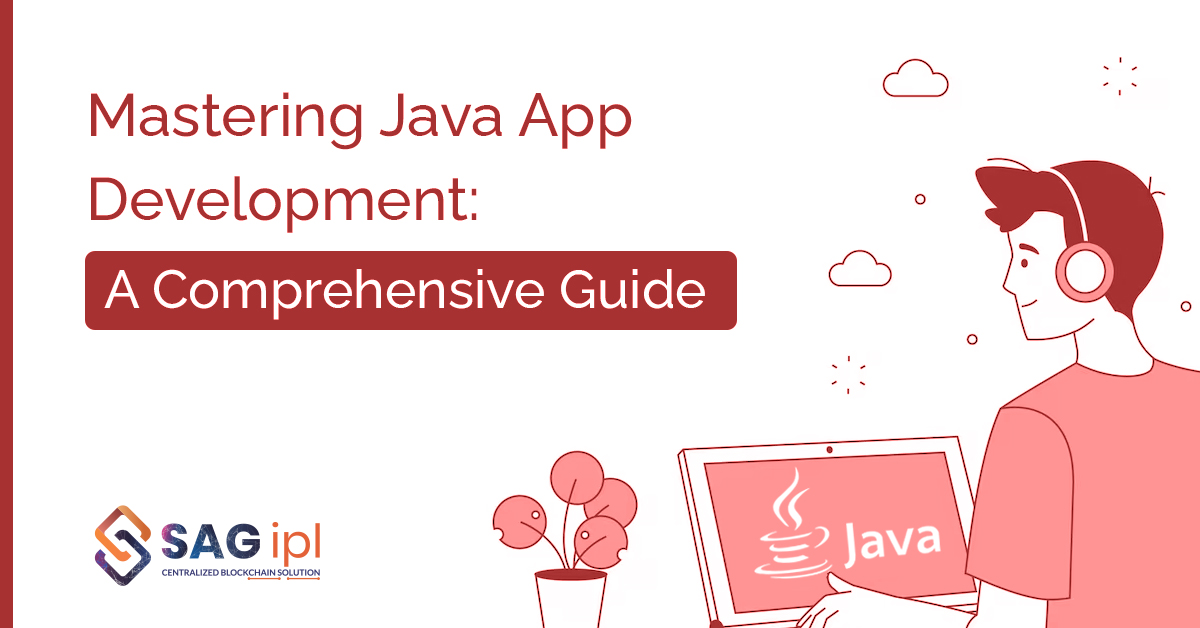Apps are everywhere in the digital world. They are programs that do specific tasks for users, such as writing documents or playing media.
But how are apps made? What is the magic behind them? One of the secrets is Java, a powerful and popular programming language that can help you create your own apps. Do you want to try it? Would you like to learn how Java can make app development easy and fun?
If yes, then you are in the right place! This guide will show you how to use Java for app development, especially for Android apps. You will learn the basics of Java programming and how to apply them to app development.
Define Java programming language
Java is a programming language that can create various applications, tools, and games for different platforms, including Android. Java was developed by Sun Microsystems in the 1990s and later bought by Oracle.
Java is a versatile programming language that has many features, such as being influenced by C++ and C. Java and other languages, such as Python and Rust, share some common concepts. One of these concepts is object-oriented programming, which means using modular elements like “classes” to organize the code.
Major 8 Java Tips for App Development
Java is a popular and versatile programming language that many outsourcing companies and software experts use. Java is easy to use and flexible, and it can handle different programming tasks on various operating systems. As long as the system has a Java interpreter, Java can run on it. Java is also a valuable language to learn because it has many security features, portability, and other advantages.
Here are the top 8 tips to help you learn the basics of Java development for mobile apps.
-
Master the basics
Having a strong grasp of Java’s fundamentals is crucial for anyone aiming to become a successful developer in this language. Proficiency in these basics not only paves the way for acquiring advanced skills but also facilitates the development and establishment of new ones. While Java may not be exceptionally complex to learn, beginners often find it intimidating when faced with its code.
-
Practice, practice, practice
Irrespective of your skill level or technical knowledge, practice remains a valuable path to improvement for everyone. To succeed as a Java developer, it’s essential to practice programming and have a solid understanding of the fundamentals. Programming not only enhances your problem-solving skills but also simulates real-world challenges through practice. Learning the Java programming language can be done conveniently from the comfort of your home.
-
Learn Java 8
Java 8 was developed to tackle issues present in Java 7 and earlier iterations. Given that the language has a history dating back to the 1990s, certain modifications were necessary. In general, Java 8 has enhanced the language in various aspects, making it more dependable, efficient, and a stronger contender in comparison to its previous versions.
-
Limit string size
Optimizing your rows is crucial for preventing memory wastage, leading to faster and more efficient project operation. Lengthy strings can consume valuable space that could be better utilized for essential features.
-
Periodically check code
It’s paramount for the success of any project. The process of bug detection and error correction can be time-consuming and demanding. Fortunately, developers have recognized the tedium of code review, leading to the creation of tools to aid in this task. Nevertheless, you can swiftly identify bugs by utilizing Stack Trace or Null Pointer Exception.
-
Use microservices and cloud
As microservices increasingly establish themselves as the dominant architecture for cloud-based applications, having a solid grasp of the microservice architecture is now more crucial than ever. Thankfully, the Spring Framework, including Spring Boot and Spring Cloud, can greatly simplify the development process.
-
Understand the Spring Framework
Additionally, it’s important to highlight that the Spring Framework, often referred to as Spring Boot, is a Java framework tailored for web application development. When it comes to building web applications, Spring Boot is the go-to choice for many developers. Grasping the inner workings of the Spring Framework can provide you with a competitive edge, and its significance is only set to grow in the future.
-
Learn Java libraries and APIs
To excel as a Java developer in application development, a comprehensive understanding of the entire Java ecosystem is essential. You don’t need expertise in every intricate detail, but familiarity with key APIs and libraries is valuable for grasping this ecosystem. Among numerous others, having a foundational understanding of these APIs and libraries can be a great starting point:
-
Unit testing libraries, like JUnit and Mockito
-
JSON processing APIs, such as GSON and Jackson
-
XML processing APIs, like Xerces and JAXB
Application development with Java
Android app development with Java is a skill that requires mastering some fundamental topics. If you are new to this field, you should learn these topics one by one, instead of trying to learn everything at once. This way, you can avoid getting confused and frustrated. Here is a suggested learning path that can help you make the most of your time.
-
Core Java
Before delving into Android application development, it’s crucial to establish a solid foundation. Start by grasping the fundamentals of object-oriented programming to effectively modularize your code and create reusable components. Additionally, consider focusing on Java, the predominant programming language in Android development. You can break down your learning process into six manageable parts, tackling them one at a time.
-
Java Collections
-
Java Syntax
-
Java Multithreading
-
Exception Handling
-
OOP
-
Input/Output Streams
-
Testing Libraries
Libraries are invaluable time-savers, enabling you to leverage frequently used functions without the need to build them from scratch. Utilizing libraries like JUnit, PowerMock, and Mockito in your Android app testing allows you to write concise Java code snippets.
These tools prove exceptionally beneficial for Test-Driven Development (TDD) as they accelerate the development process by writing tests prior to your application’s code. Becoming familiar with Java testing tools early in your career is a wise investment for your long-term development endeavors.
-
Android SDK (Software Development Kit)
The Android SDK is your all-in-one solution for Android application development. It serves as a constant companion throughout your Android development career, adapting to various programming languages and integrated development environments (IDEs).
Once your Java code is ready, you’ll require a means to execute it on Android devices and harness the full potential of the Android OS.
The Android SDK, a comprehensive software development kit, encompasses all the essential components for building your product, such as documentation, libraries, code samples, and development procedures. Additionally, it features Android emulators, enabling you to test your code on virtual Android devices, replicating real-world conditions.
-
SQL
The final piece of the Java application development puzzle is Structured Query Language (SQL), with SQLite being the most commonly used version on Android devices. Give it due consideration, as it forms the foundation for your Java programming career.
-
Training and practice
Now is the time to apply your knowledge and bolster your confidence. It’s perfectly okay if you don’t feel entirely comfortable with coding just yet. Remember, the key to improving your coding skills is through practice.
Start with small projects and develop programs to solve specific tasks. Don’t let mistakes deter you; even the most seasoned developers encounter errors. Instead, focus on learning from your mistakes, rectifying them, and using them as stepping stones to tackle new challenges.
How much time is required to master Java Programming?
Learning a programming language is not a simple task, and the time it takes to learn Java language depends on how you approach it, how well you remember what you learn, and how much you practice every week.
You cannot expect to master Java programming after taking a one-semester course at your local university or a 15-week program at a coding boot camp. However, you can learn the basic skills you need to build a solid foundation in a short time, if you are motivated and diligent.
The Bottom Line
Java is a versatile and powerful programming language for app development. Its widespread adoption, robust ecosystem, and platform independence make it an excellent choice for creating a wide range of applications. By mastering Java and adhering to best practices in software development, developers can build high-quality, cross-platform apps that cater to diverse user needs. Java’s continued relevance and extensive community support ensure that it remains a valuable skill for app developers, offering opportunities for innovation and growth in the ever-evolving world of technology.
Going for the right Java Development Company is a lengthy and complex process. However, it is also important for your business concern. You should choose the right firm that not only makes the best application but also creates long-term – relations based on mutual trust and growth.
Now if you are genuinely looking for the best company that has the most equipped Java developers then, you need to hire SAGIPL Java App Development Company. It is a prominent and leading service-based company that has highly skilled employees. They thoroughly go through the requirements of the client and come out with the best result. SAG IPL Java App Development Company took economical charge of the service and also assured delivery of the task at an assigned time.





